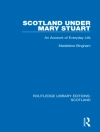This electronic version has been made available under a Creative Commons (BY-NC-ND) open access license. Building on earlier work, this text combines theoretical perspectives with empirical work, to provide a comparative analysis of the electoral systems, party systems and governmental systems in the ethnic republics and regions of Russia. It also assesses the impact of these different institutional arrangements on democratization and federalism, moving the focus of research from the national level to the vitally important processes of institution building and democratization at the local level and to the study of federalism in Russia.
Содержание
Introduction 1. The Soviet legacy and Russian federalism 1985-1993 2. Federalism and constitutional asymmetry 3. From ethnic to legal and economic separatism 4. Fiscal federalism and socio-economic asymmetry 5. Federalism under Putin 6. Federalism and political asymmetry: Regional elections and political parties 7. Federalism and political asymmetry: executive versus legislative power 8. From constitutional to political asymmetry: crafting authoritarian regimes in Russia’s regions and republics 9. Conclusions Index
Об авторе
Cameron Ross is Senior Lecturer in the Department of Politics, University of Dundee












